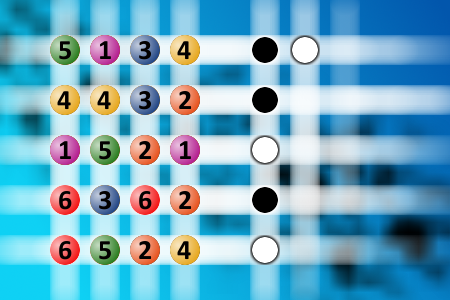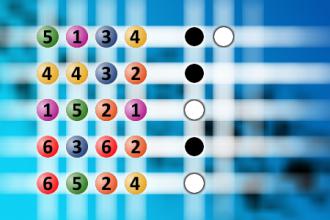Find the right combination
The computer chose a secret code (sequence of 4 digits from 1 to 6). Your goal is to find that code. Black circles indicate the number of hits on the right spot. White circles indicate the number of hits on the wrong spot.Correct answers: 2
#brainteasers #mastermind

One Last Confession
While a man was dying, his wife was maintaining a candlelight vigil by his side. She held his fragile hand, tears running down her face.Her praying woke him from his slumber. He looked up, and his pale lips began to move slightly."My darling," he whispered."Hush, my love," she said. "Rest, don't talk."He was insistent. "I have something that I must confess," he said in a tired voice."There isn't anything to confess," replied his weeping wife. "Everything's ok. Go to sleep."The man blurted out: "No, no, I must die in peace. I...I slept with your sister, your best friend, her best friend, and your mother!" "I know," whispered his wife, "that's why I poisoned you."

